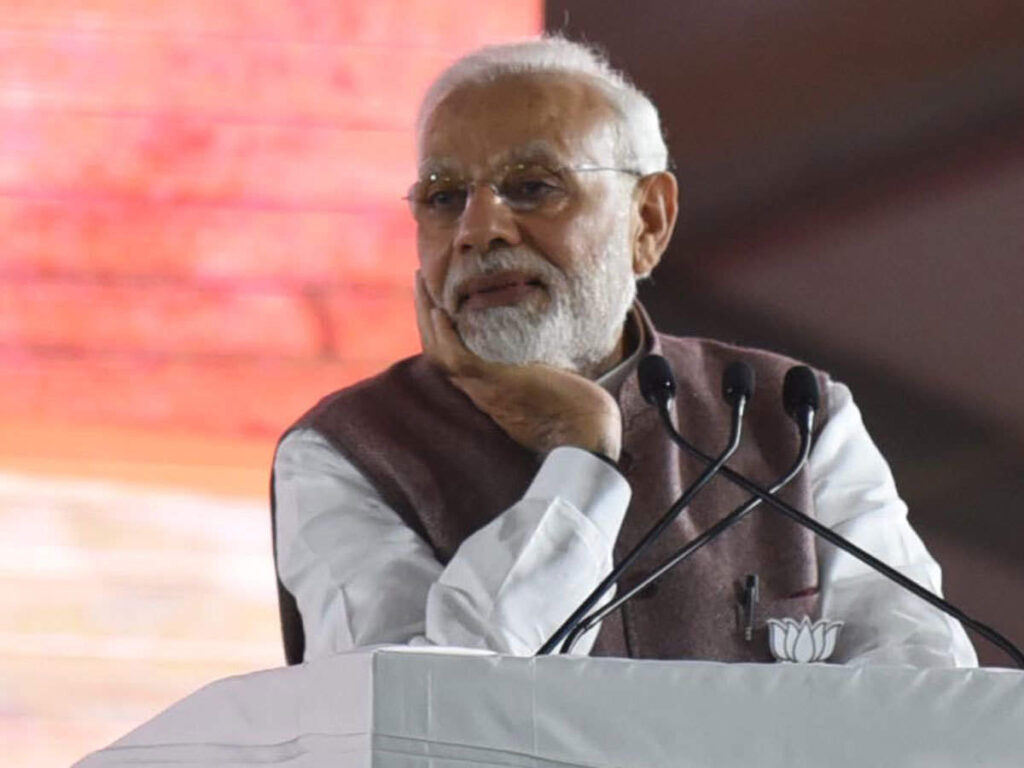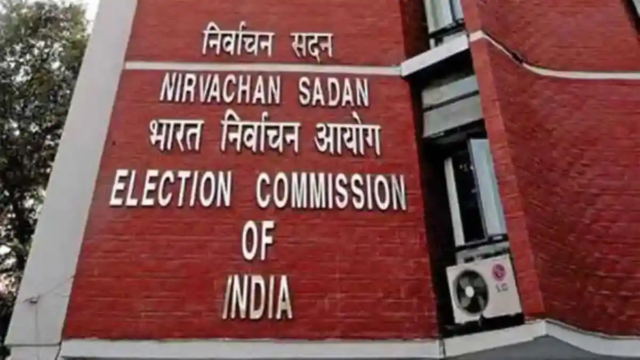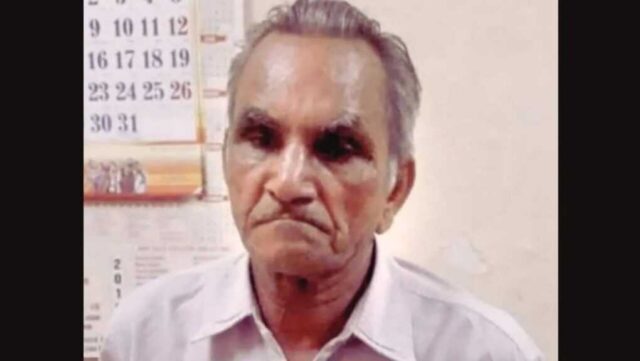Indian society is ‘male dominated’, PM Modi’s statement on Nehru surname is wrong

After the questions raised by Rahul Gandhi in Parliament on the Gautam Adani-Hindenburg case, Prime Minister Modi hit back at Rahul Gandhi in Parliament. The people of the country were expecting him to speak on the Adani issue and the loss caused to public sector banks by investing in Adani’s company, but instead of answering these questions, he raised a new issue of Pandit Nehru and through that From attacked the Gandhi family.
In his long speech in Parliament on February 9, PM Modi referred to Pandit Jawaharlal Nehru and said, “If Nehru was so great then why is someone from his own generation afraid to keep the Nehru surname? Why is he ashamed of having the Nehru surname?” Even though the Prime Minister said this to divert the country’s attention from the Adani issue, but looking closely, this matter is related to the condition of women in the Indian society.
The surname is a symbol of the patriarchal nature of the Indian society
According to the customs of the Indian society, people put their father’s surname with their name. This surname reflects the patriarchal nature of the Indian society, or rather, male dominance. This is the reason why in India, especially in North India, people consider the son as their real child and the son is considered as the real successor of the family.
There is a popular saying in North India that ‘the dynasty grows with the son’. In order to increase their dynasty, people ask for a vow to have a son or grandson in temples and mosques. I did not see anyone asking for a vow for the daughter. Generally having a daughter is not a matter of sorrow. If a daughter is born, some accept her with a heavy heart and some happily consider her as the Lakshmi of the house. But if after two or three daughters, it is only a daughter, then it is a matter of sorrow. In Bihar, if someone has a son after two or three daughters, then people consider the daughter who has a son as lucky. Here too there is male dominance. Because of the son, the daughter’s respect increased and she got love.
According to tradition, there is no caste-religion of women, men are their ethnic identity
Another saying is very popular in North India that ‘beti parai dhan hoti hai’. That’s why caste and religion have not considered women as their own. We have heard from many knowledgeable people of Vedas that ‘there is no caste of a daughter’. The boy of the caste or religion she marries will belong to the same caste and religion. Means caste-religion is also for men only, not for women. That is why the gotra of women also changes after marriage. She is considered to be of her husband’s gotra.
Even though the Indian society is divided on the basis of caste, religion, region and language and due to this mutual conflict also goes on continuously, but there is equality in the case of women’s surname. In Bihar-UP there are hundreds of castes in Hinduism only. Men of these castes put surnames like Singh, Yadav, Thakur, Jha, Mishra, Patel etc. in front of their names, but most women of all castes still have ‘Devi’ as their surname. Women apply goddess with their name. Nowadays some women use their husband’s surname. Similarly, in Gujarat most women have the surname ‘Bai’ or ‘Ben’. Similarities will be found in other states as well.
Nowadays, some people of Bollywood or celebrity culture, especially actresses use their father’s surname along with their husband’s surname. For example, Kareena Kapoor writes Kareena Kapoor Khan by adding ‘Khan’ surname of her husband Saif Ali Khan. Aishwarya Rai Aishwarya Rai Bachchan started writing after marriage.
Even if we accept that these actresses have made some effort to break the shackles of caste and religion, still it does not mean that the supremacy of patriarchy has reduced or ended here because the names of their children Then only father’s surname was added. Saif-Kareena’s son’s name is Taimur Ali Khan and Abraham Ali Khan. Aishwarya-Abhishek’s daughter’s name is Aaradhya Bachchan. The surname of the actresses remained limited to their own names.
Celebrity people have done so much but common women cannot do it. Many times they have to face legal troubles on changing the surname. Due to difference of surname in Aadhaar card, voter card and educational certificate, they face difficulty in taking advantage of government schemes, taking loans from banks or getting government jobs. Affidavit has to be done from many places. For celebrities, access to law is easy, but for common women in villages, law is a distant thing. The common woman does not want to go through legal hassles and court cases.
India’s ethno-religious system accepts male supremacy and promotes patriarchy. The law of patriarchy is the accepted social law. People follow it wholeheartedly that’s why it has stood firmly for thousands of years.
There is influence of patriarchy in politics too
The strength of patriarchy is clearly visible not only in Indian society, but also in politics. The Indian Parliament has a total of 788 members including the Lok Sabha and the Rajya Sabha, out of which only 110 women are MPs (32 in the Rajya Sabha and 78 in the Lok Sabha). There are a total of 78 ministers in the Modi cabinet including the Prime Minister. There are only 11 women ministers. There are 29 states and 2 union territories with legislatures in India. There is a woman chief minister only in one state, West Bengal. Where Mamta Banerjee herself is the party chief. BJP has government in eleven states and Congress in three states. Not even one has a woman chief minister.
It is a matter of honor that the 73rd and 74th constitutional amendments of the constitution were made in 1992, in which a provision was made to reserve one-third of the seats for women in village panchayats and municipal bodies. If there was no legal compulsion, the number of women in the local government would have been countable. This is also one-third representation just to say. Most of the women representatives do not take decisions related to their positions themselves. Decisions are taken by her husband, father or father-in-law and they are the ones who really use the position. Pradhan ji of the recent ‘Panchayat’ web series is a fresh and perfect example of this.
The Gandhi family followed the Indian tradition only
Now come to the question of PM Modi’s Nehru surname. The Prime Minister should know that the matter of surname is a kind of social law. This applies equally to everyone from the common man to the Prime Minister, so it will also apply to the Nehru-Gandhi family. There is no freedom in Indian society to keep one’s surname, nor do one get two-four options to choose one’s surname. It is essentially a process of transmission from one generation to the next (usually father to son).
Indira and Feroze were married in 1942 by Mahatma Gandhi and given the socio-political scenario, he gave Feroze his ‘Gandhi’ surname. Now the one whom Mahatma Gandhi gives his surname, why not apply it too! After marriage, Feroze became Feroze Gandhi, as a result, Indira Nehru also became ‘Indira Gandhi’ because a woman has to adopt her husband’s surname. Following this tradition, Rajiv Gandhi, Sanjay Gandhi, Rahul Gandhi and Varun Gandhi adopted their father’s surname. There is no question of Nehru surname.
Actually, Congress and Nehru-Gandhi family is the favorite subject of Prime Minister Modi. Whenever he is stuck in any difficulty, he tries to get out by resorting to Nehru’s mistakes and Gandhi family’s familyism. Many a times, he presents misleading arguments related to Congress-Nehru, which later prove to be wrong.





